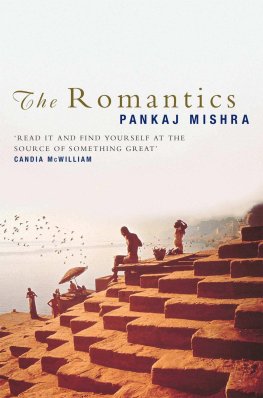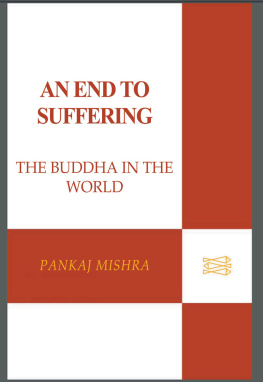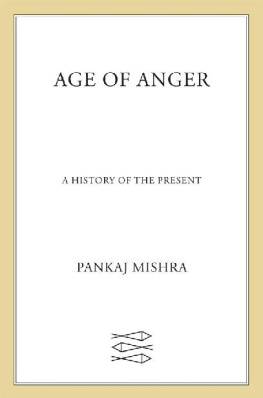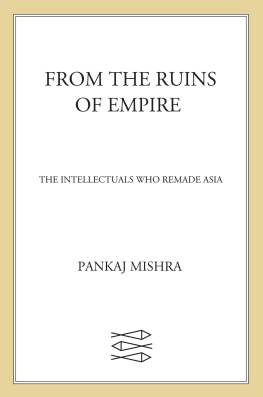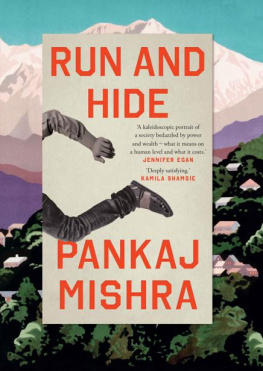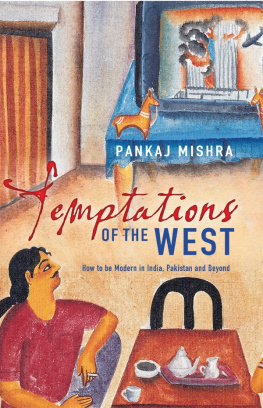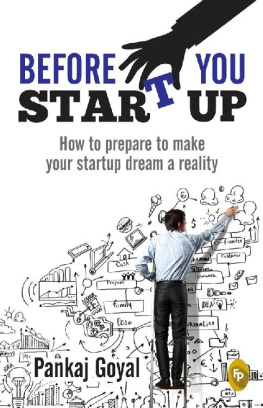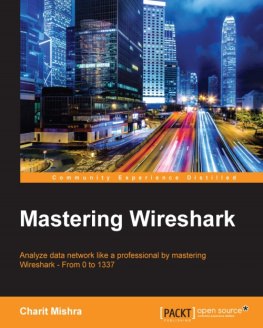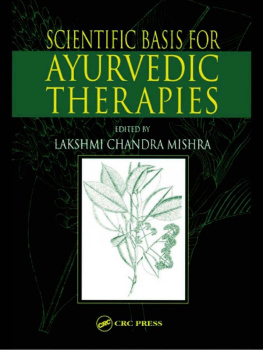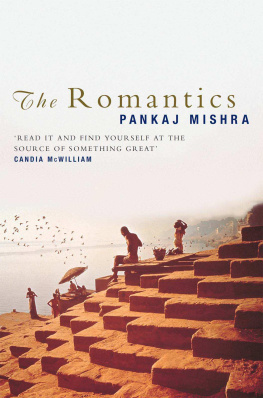Pankaj Mishra - Bland Fanatics
Here you can read online Pankaj Mishra - Bland Fanatics full text of the book (entire story) in english for free. Download pdf and epub, get meaning, cover and reviews about this ebook. publisher: Farrar, Straus and Giroux, genre: Politics. Description of the work, (preface) as well as reviews are available. Best literature library LitArk.com created for fans of good reading and offers a wide selection of genres:
Romance novel
Science fiction
Adventure
Detective
Science
History
Home and family
Prose
Art
Politics
Computer
Non-fiction
Religion
Business
Children
Humor
Choose a favorite category and find really read worthwhile books. Enjoy immersion in the world of imagination, feel the emotions of the characters or learn something new for yourself, make an fascinating discovery.

- Book:Bland Fanatics
- Author:
- Publisher:Farrar, Straus and Giroux
- Genre:
- Rating:3 / 5
- Favourites:Add to favourites
- Your mark:
- 60
- 1
- 2
- 3
- 4
- 5
Bland Fanatics: summary, description and annotation
We offer to read an annotation, description, summary or preface (depends on what the author of the book "Bland Fanatics" wrote himself). If you haven't found the necessary information about the book — write in the comments, we will try to find it.
Bland Fanatics — read online for free the complete book (whole text) full work
Below is the text of the book, divided by pages. System saving the place of the last page read, allows you to conveniently read the book "Bland Fanatics" online for free, without having to search again every time where you left off. Put a bookmark, and you can go to the page where you finished reading at any time.
Font size:
Interval:
Bookmark:
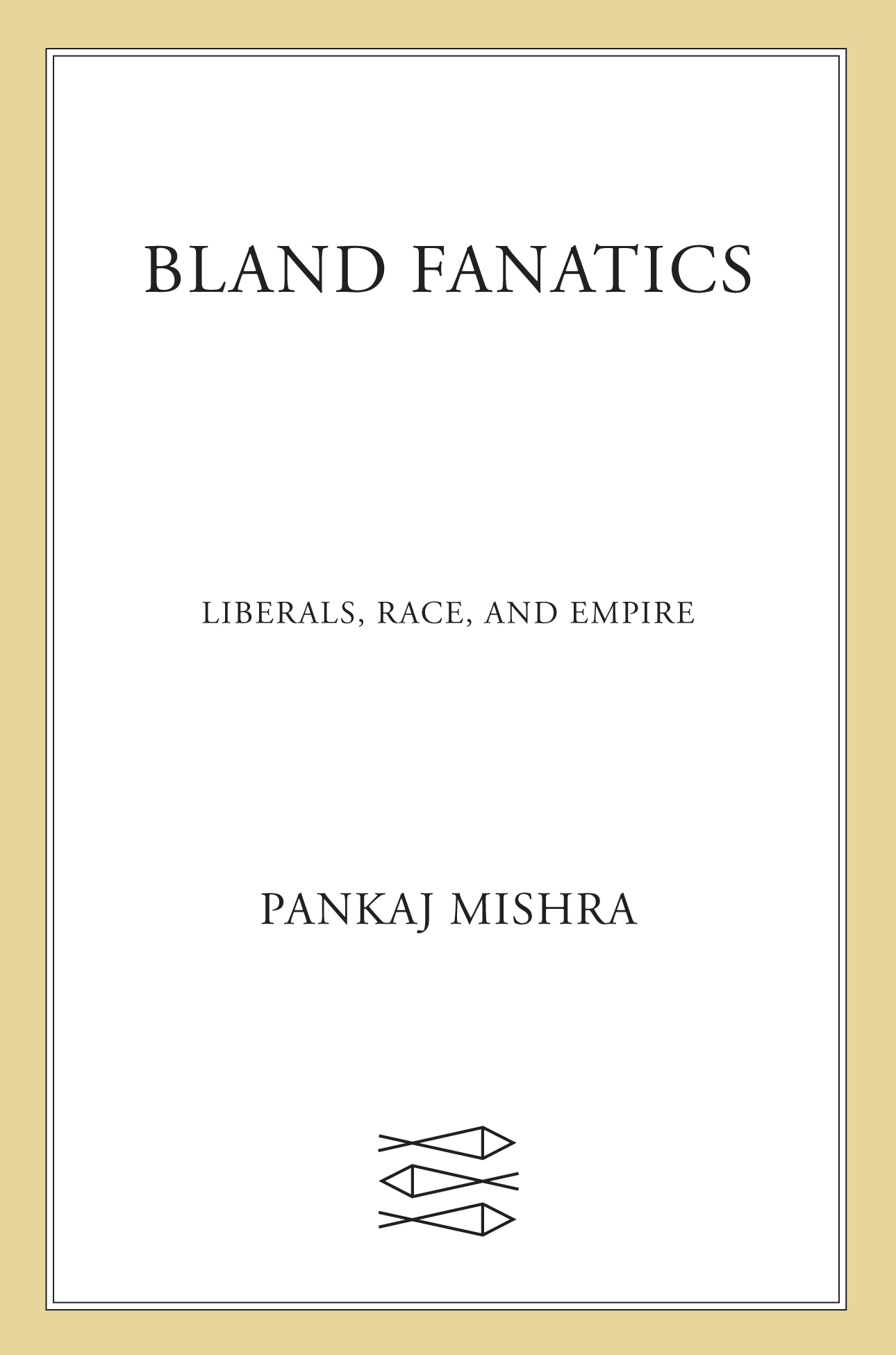

The author and publisher have provided this e-book to you for your personal use only. You may not make this e-book publicly available in any way. Copyright infringement is against the law. If you believe the copy of this e-book you are reading infringes on the authors copyright, please notify the publisher at: us.macmillanusa.com/piracy.
I Want Everyone to Become an American
Thomas Friedman
Someday we must write the history of our own obscurity manifest the density of our narcissism
Roland Barthes
The essays in this book were written in response to the Anglo-American delusions that climaxed in Brexit, the election of Donald Trump and, finally, a calamitous response to the COVID-19 outbreak. These range from the nineteenth-century dream of imperial-era liberalism long championed by the Economist, in which capital, goods, jobs and people freely circulate, through Henry Luces proclamation of an American century of free trade and modernisation theory the attempt by American Cold Warriors to seduce the post-colonial world away from communist-style revolution and into the gradualist alternative of consumer capitalism and democracy to the catastrophic humanitarian wars and demagogic explosions of our times.
Among the lesser culprits of history, Reinhold Niebuhr wrote in 1957, at the height of the Cold War, are the bland fanatics of western civilization who regard the highly contingent achievements of our culture as the final form and norm of human existence. For Niebuhr, the bigger culprits of history were, of course, communists and fascists. A dedicated anti-communist, the American theologian was vulnerable to phrases such as the moral superiority of Western civilization. Nevertheless, he could see the peculiar trajectory of liberalism: how a dogma which was intended to guarantee the economic freedom of the individual became the ideology of vast corporate structures of a later period of capitalism, used by them, and still used, to prevent a proper political control of their power. He was also alert to the fundamentalist creed that has shaped our age that Western-style capitalism and liberal democracy will be gradually generalised around the world, and every society, in short, ought to evolve just as Britain and the United States did.
Of course, Niebuhr could not have anticipated that the bland fanatics who made the Cold War so treacherous would come to occupy, at its end, historys centre stage. Incarnated as liberal internationalists, neocon democracy promoters and free-market globalisers, they would blunder through a world grown more complex and intractable, and help unravel large parts of Asia, Africa and Latin America before sowing political chaos in their own societies.
The global history of the post-1945 ideologies of liberalism and democracy, or a comprehensive sociology of Anglo-America and Anglo- and America-philic intellectuals, is yet to be written, though the world they made and unmade is entering its most treacherous phase yet. Most of us are still only emerging, bleary-eyed, from the frenetic postCold War decades when, as Don DeLillo wrote, the dramatic climb of the Dow and the speed of the internet summoned us all to live permanently in the future, in the utopian glow of cyber-capital.
But it has long been clear that the global wager on unregulated markets, and military interventions on behalf of them, were the most ambitious ideological experiments undertaken in the modern era. Their adepts, allies and facilitators, from Greece to Indonesia, were also far more influential than their socialist and communist rivals. Homo economicus, the autonomous, reasoning, rights-bearing subject of liberal philosophy, came to stalk all societies with some fantastical plans to universally escalate production and consumption. The vernacular of modernity coined in London, New York and Washington, DC, came to define the common sense of public intellectual life across all continents, radically altering the way in which much of the worlds population understood society, economy, nation, time and individual and collective identity.
Of course, those trying to look beyond the exalted rhetoric of liberal politics and economics rarely found any corresponding realities. My own education in this absence began through an experience of Kashmir, where India, billed as the worlds largest democracy, descended into a form of Hindu supremacism and racist imperialism of the kind it liberated itself from in 1947. I went to the valley in 1999 with many of the prejudices of the liberal Indian civiliser someone who placidly assumed that Kashmiri Muslims were much better off being aligned with secular, liberal and democratic India than with the Islamic state of Pakistan.
The brutal realities of Indias military occupation of Kashmir and the blatant falsehoods and deceptions that accompanied it forced me to revisit many of the old critiques of Western imperialism and its rhetoric of progress. When my critical articles on Kashmir appeared in the year 2000 in the Hindu and the New York Review of Books, they were attacked at home most vociferously by self-styled custodians of Indias liberal democracy rather than by Hindu nationalists. I had come up against an influential ideology of Indian exceptionalism, which claimed moral prestige and geopolitical significance for Indias uniquely massive and diverse liberal democracy.
Many of those righteous notions reeked of upper-caste sanctimony and class privilege. Piously invoking the idea of India, the countrys experiment with a secular and liberal polity, the fetishists of formal and procedural democracy seemed unbothered by the fact that people in Kashmir and Indias north-eastern border states lived under de facto martial law, where security forces had unlimited licence to massacre and rape, or that a great majority of the Indian population found the promise of equality and dignity underpinned by rule of law and impartial institutions to be a remote, almost fantastical, ideal.
For decades, India benefited from a Cold War-era conception of democracy, which reduced it to a morally glamorous label for the way rulers are elected, rather than for the kinds of power they hold, or the ways they exercise it. As a non-communist country that held routine elections, India possessed a matchless international prestige despite consistently failing worse than many Asian, African and Latin American countries to provide its citizens with even the basic components of a dignified existence. The halo of virtue around India shone brighter as its governments embraced free markets and communist-run China abruptly emerged as a challenger to the West. Even as India descended into Hindu nationalism, an exuberant consensus about India was developing among Anglo-American elites: that liberal democracy had acquired deep roots in Indian soil, fertilising it for the growth of free markets.
For a writer of my background, it became imperative to challenge this unanimity first at home, and then, increasingly, abroad. In many ways, Indias own bland fanatics, who seemed determined to nail their cherished idea of India into Kashmiri hearts and minds, prepared me for the spectacle of a liberal intelligentsia cheerleading the war for human rights in Iraq, with the kind of humanitarian rhetoric about freedom, democracy and progress that was originally heard from European imperialists in the nineteenth century.
Font size:
Interval:
Bookmark:
Similar books «Bland Fanatics»
Look at similar books to Bland Fanatics. We have selected literature similar in name and meaning in the hope of providing readers with more options to find new, interesting, not yet read works.
Discussion, reviews of the book Bland Fanatics and just readers' own opinions. Leave your comments, write what you think about the work, its meaning or the main characters. Specify what exactly you liked and what you didn't like, and why you think so.

